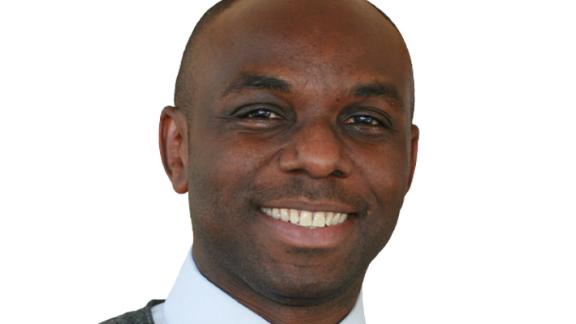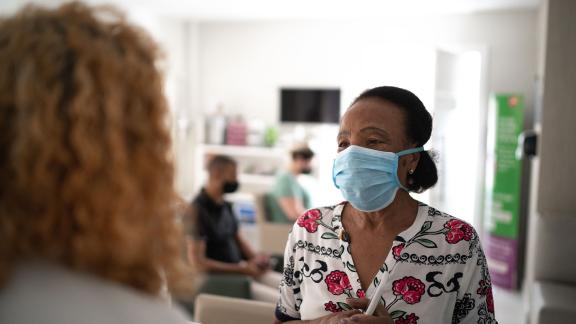Tackling the mental health tsunami: joint working between PCNs and mental health providers

It is an open secret that one of the biggest impacts of the COVID-19 pandemic is the large rise in mental health problems in our communities, writes Dr Tayo Kufeji, clinical director of The Bridge MK PCN, as he explains how his GP practice has been tackling the rising need.
We cannot deny the impact that a novel virus, repeated lockdowns, economic downturns, serious illness and death, has had our individual and collective psyche.
We have seen an unprecedented increase in demand for all levels and complexities of mental health and in all age groups. And this on a backdrop of unmet mental health need prior to COVID-19, from years of chronic underfunding and lack of parity between mental and physical health. A snapshot audit of appointment requests in my GP practice in October 2020, showed that 15 per cent of presentations for the month were for mental health related conditions including stress, depression, anxiety and burnout – and this is just the patients!
At The Bridge
We have been fortunate in our patch to be slightly ahead of the curve in recognising rising mental health pressures and in partnering with our local mental health provider to address some of that demand.
A few years ago, as a primary care home (the precursor to primary care networks) we embarked on a process to understand our local population priorities. Quite surprising to us, the data and local intelligence identified mental health needs of young people and the adult population as our top health priority.
Armed with that information, we were able to target services aimed at these cohorts. We worked with the voluntary sector to implement a bespoke programme for our young people, but that’s a whole other blog. We partnered with our mental health provider, very keen bunch I have to say, and together we ran a pilot locating an IAPT therapist and a mental health practitioner based within practice. Both practitioners were fully employed by the mental health trust but deployed into primary care. This may not sound ground-breaking for some, but for us, it definitely was!
The Primary Care Network (PCN) Additional Roles Reimbursement Scheme has made provision from April 2021 to have a mental health practitioner, jointly employed by the mental health provider and the PCN. For us, this feels like a progression down a well –trodden path, and will enhance our team. So what have we learned so far?
What worked well
Firstly, what’s worked well. Needless to say, mental health providers come with the expertise to tackle the more complex and challenging mental health cases we see in primary care. The one-to-one conversations in practice corridors and at monthly clinical meetings have been invaluable. The practice-based mental health team also have access to consultant level support to not only help manage the patient but this senior-level input helps to upskill GPs as well.
In Milton Keynes, general practices and the mental health provider share the same clinical system (SystemOne), which means clinical notes made in the mental health consultation, can be viewed by the clinicians in practice. Definitely beats having to wait for letters following a consultation which seems to always be sent to us on ‘snail mail’.
There is a true shared care approach, so patients can be transferred (after initial referral) between primary care and the mental health service without the need for repeat referrals.
Overcoming challenges
What about challenges? The demand for mental health services is ever increasing and the capacity of the service is limited. The maths just doesn’t add up unless done differently. This coupled with ever increasing thresholds into mental health services, makes it really difficult to meet all the needs we face. This is even more pertinent in children and young people’s services.
We manage this with open and honest conversations between the two parties. Communication is the oil that lubricates relationships. Misunderstanding and distrust between organisations is too easy without open dialogue.
Having joint IT systems is indeed a huge advantage but was not without its challenges. It took several months and a lot of elbow grease from the IT managers for the IT systems to ‘talk’ to each other. But it was worth it in the end.
In conclusion, successful joint working between PCNs and mental health providers is down to one thing – relationships. Get to know your mental health provider lead. Share your PCN vision and goals. There is bound to be common ground you can both take forward. Be bold and don’t be afraid to ask. More often than not, our mental health colleagues are not sure how to approach us or think we are too busy, so you make the first move. We need genuine shared goals and real intent on partnership working to address the mental health tsunami that is in front of us. Let’s do it together.
Dr Tayo Kufeji is a GP, clinical director for The Bridge MK Primary Care Network and a member of the PCN Network's clinical directors board. Follow him on Twitter @tayokufeji



